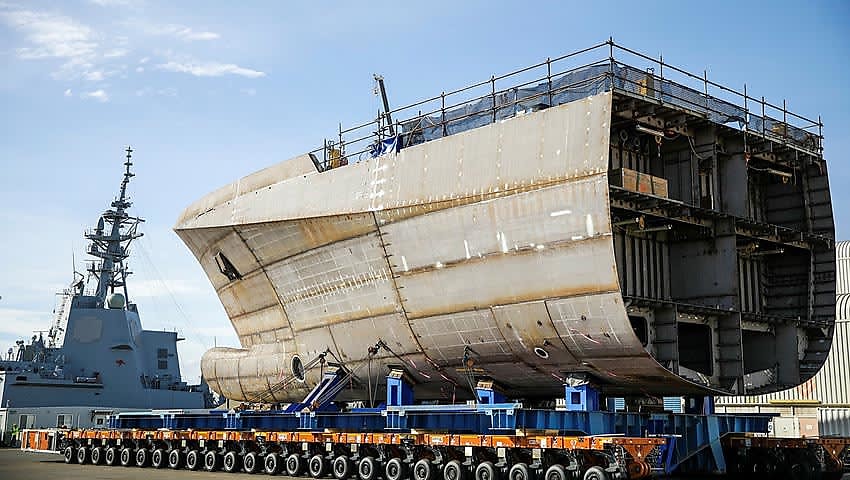The Commonwealth and South Australian governments have announced a partnership to deliver new training and employment pathways to equip up to 300 South Australians with the skills needed for a career in the state’s vibrant defence industry.
To continue reading the rest of this article, please log in.
Create free account to get unlimited news articles and more!
As part of this collaboration, the Albanese government, in partnership with the Malinauskas government, will establish the Defence Industry Pathways Program and the Shipbuilding Employment Pathways pilot initiative.
These programs will enable trainees and apprentices, including school leavers, to obtain world-class qualifications while receiving hands-on training opportunities and full‑time paid employment.
Delivery of the Defence Industry Pathways Program and the Shipbuilding Employment Pathways pilot is being co-designed with the South Australian government.
Acting Prime Minister and Defence Minister Richard Marles said, “Our future conventionally armed, nuclear-powered submarines and commitment to continuous naval shipbuilding will create a pipeline of high-skilled, well-paid jobs in South Australia for generations. By investing in programs that support apprentices and trainees now, we are working to ensure a defence Future Made in Australia.”
PEER Education Employment & Training Ltd has been selected to support these programs as the group training organisation, in partnership with TAFE SA as the registered training organisation.
Defence Industry Minister Pat Conroy added, “These initiatives will help deliver the workforce required to deliver the capabilities needed to safeguard the nation while providing a path to financial security for thousands of South Australians.”
Together, they are investing in over 20 initiatives under the joint Commonwealth–South Australia Defence Industry Workforce and Skills Action Plan, including:
- The Skills and Training Academy at Osborne.
- The Schools Pathways Program, supporting almost 5,000 secondary students.
- Over 1,000 additional Commonwealth supported places at the University of Adelaide and Flinders University over the coming years.
A strong defence industry in South Australia will be critical to delivering the nation’s future conventionally armed, nuclear‑powered submarines and major surface combatant vessels, including the Hunter Class frigate. These capabilities will support thousands of jobs and underpin over $30 billion in investment in the state over the next decade.
Commonwealth Minister of Skills and Training Andrew Giles said, “We’re putting TAFE at the centre of delivering Australia’s future defence industry workforce. This program is another great example of the partnership between the Albanese and the Malinauskas governments to build the critical skills needed to support AUKUS.”
At its peak, up to 5,500 direct jobs are forecast to be created in South Australia for the build of nuclear-powered submarines, while the construction of the Hunter Class frigates at Osborne will sustain at least 2,000 jobs and create at least 500 new jobs over the next decade.
South Australian Treasurer and Minister of Defence and Space Industries Stephen Mullighan welcomed this joint investment in South Australia’s defence industry workforce, saying, “This surge in demand means South Australians will have access to thousands of highly skilled, highly paid career opportunities in the coming years and decades.
“Through the Defence Industry Pathways Program and the Shipbuilding Employment Pathways, we’re proud to partner with the Commonwealth government to support people of all ages and backgrounds into these roles.”
SA Minister of Education, Training and Skills Blair Boyer expanded on these comments, saying, “The Schools Pathway program will support our young people by providing an understanding of the defence industry and the various careers available to them as part of the sector. We want students and apprentices to know they can start their journey to a career in defence while still at school, getting qualifications that will get them a job when they finish their SACE.”
From today, PEER is accepting expressions of interest for both programs, with the first group of trainees and apprentices to commence from March 2025.

 Login
Login







